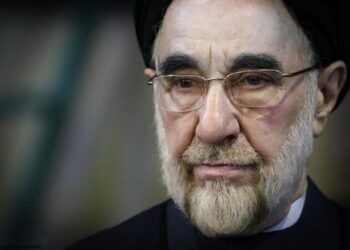It began last Tuesday, five days before the NAM sessions were due to begin in Tehran when Mohammad-Reza Forqani, the spokesman for Iran’s summit planners, announced that North Korean President Kim Jong-eon would be coming to Tehran for the summit. His quotes were plastered all over the Iranian media.
The next day, Foreign Minister Ali-Akbar Salehi joyfully repeated that news to reporters, seeming to see it as a great achievement for the Islamic Republic and recognition of its prominence.
But South Korean analysts questioned what Iran had said. They pointed out that Korea’s top leader had never attended international events. And they noted that Kim Jong-eon, while the top official of North Korea, does not hold the title of president.
It turned out Iran was ignorant of those facts and got its Kims confused. The leader of the North Korean delegation named by North Korea was Kim Yong-nam, who holds the titled of president of the Supreme People’s Assembly Presidium, and customarily attends international summits.
Forqani quickly backtracked. But he didn’t admit to making an error. “I didn’t say such things [about Kim Jong-eon visiting], and the reports saying that are blatant lies,” he insisted.
Next, Foreign Ministry spokesman Ramin Mehman-Parast announced that Iran had invited Ismail Haniya, the leader of Gaza from Hamas, to attend the summit as a “special guest.”
That ticked off the Palestinian leadership in the West Bank, which says Gaza is just a subdivision of Palestine. A spokesman for Palestinian President Mahmoud Abbas said Abbas would cancel his plans to attend the summit if Haniya was also going.
Backtracking again in Tehran. And again, the government resorted to denial rather than admission of error. Forqani said Haniya had never been invited. (A Haniya aide said Haniya had already declined the invitation.)
Then, the Fars news agency quoted Mehdi Akhundzadeh, the secretary of the summit planning organization, as telling it that UN Secretary General Ban Ki-moon would visit the Natanz uranium enrichment plant during his stay at the summit.
(Only Fars reported that, however. Other news outlets quoted Akhundzadeh as saying visits to nuclear sites could be arranged for foreign guests if they were interested.)
The UN swiftly denied Ban would make any such visit. Mehman-Parast then said, “We have no specific plans for a visit to Iran’s nuclear installations by foreign guests.”
Finally, on Monday both Fars and the Islamic Republic News Agency (IRNA) reported that India, Pakistan and Iran had held a joint meeting to discuss the development of the port of Chabahar to expedite shipments of goods to Afghanistan.
Indian officials were aghast at the suggestion that they had secretly met with Pakistani officials. “There was no such trilateral meeting,” Indian Foreign Ministry spokesman Syed Akbaruddin said firmly.














